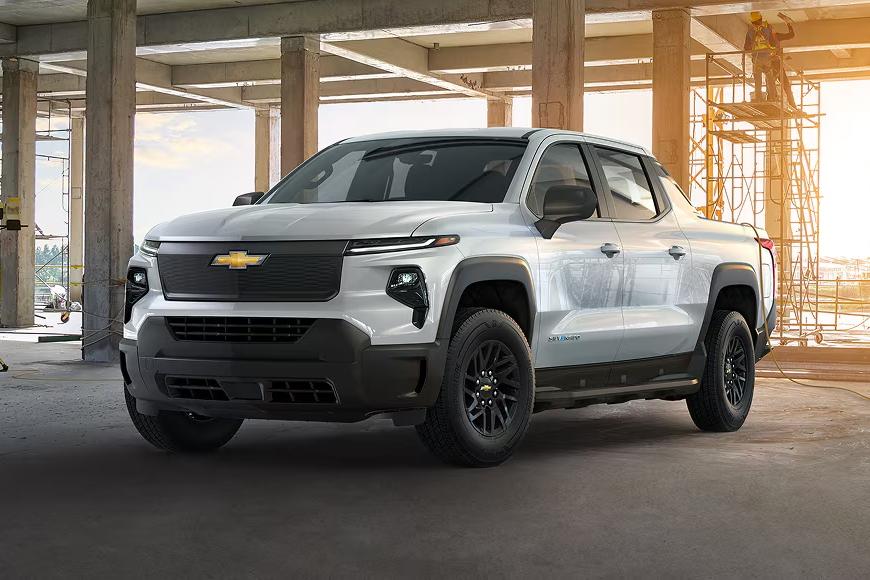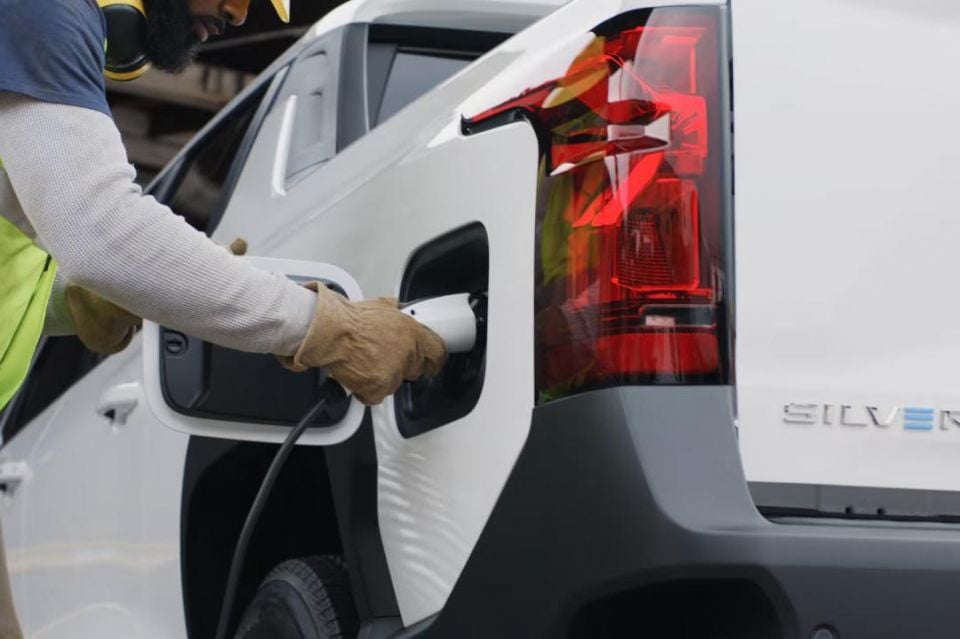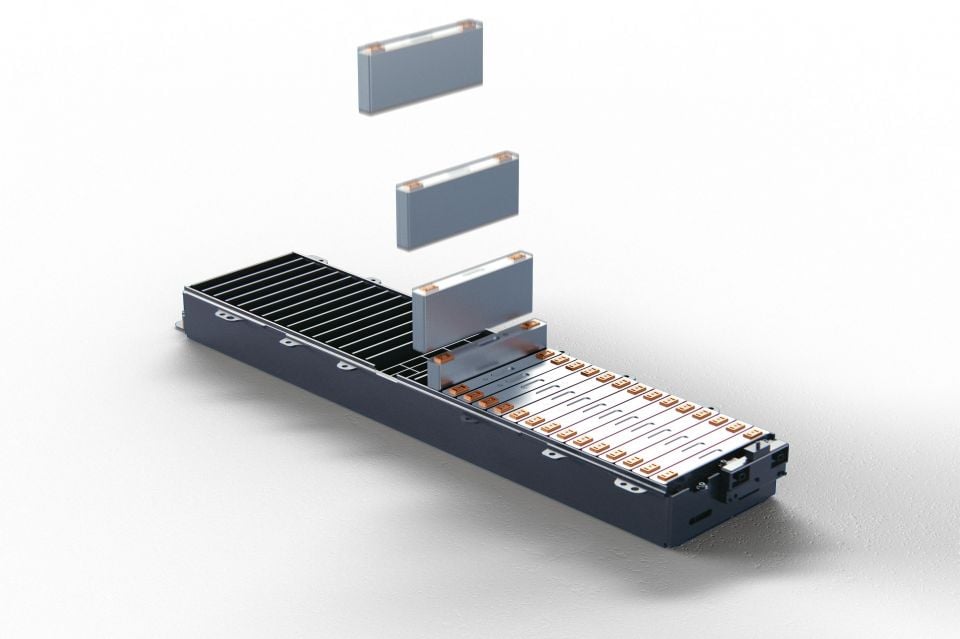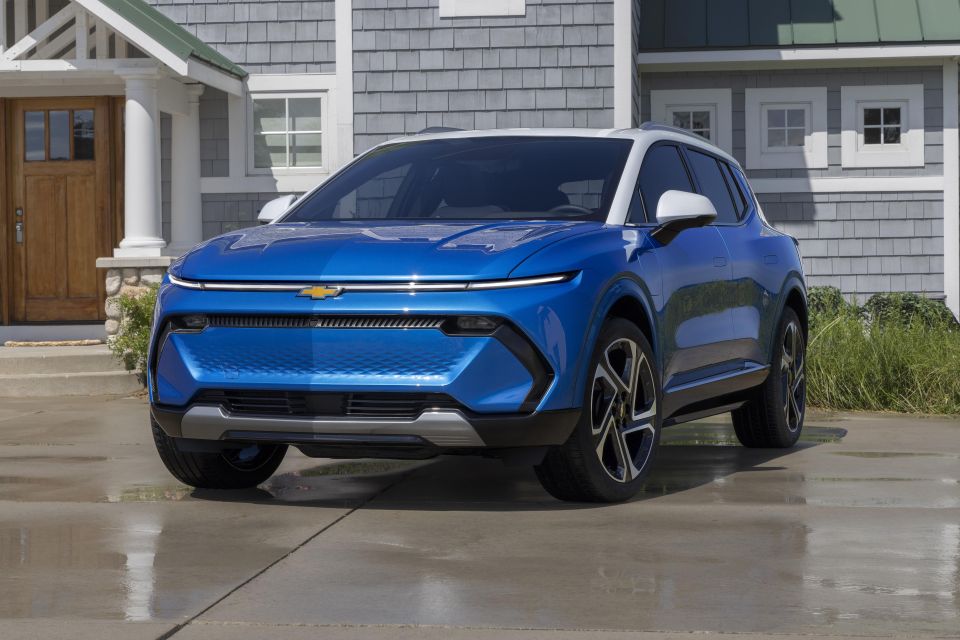
General Motors says its upcoming lithium manganese rich (LMR) batteries will offer an ideal balance of cost and range for certain electric vehicles (EVs).
The American automaker plans to offer LMR batteries in addition to its existing types of lithium-ion batteries: lithium iron phosphate (LFP), intended for use in more affordable vehicles, and nickel manganese cobalt (NMC), which it uses in more high-end vehicles.
‘Rich’ isn’t an element on the periodic table, of course. Instead the name refers to a higher percentage of manganese being used but less in the way of nickel and cobalt.
“We think that LMR really has an opportunity to be the low-cost chemistry in North America that’s American pioneered and aligned with the infrastructure we already have in place,” GM battery engineer Andrew Oury told media at the GM Technical Center in Michigan.
“LMR has cost that’s comparable to LFP but instead of having a range capped at around 350 miles [563km], we can get well over 400 miles [644km] of range with LMR.”
Hundreds of new car deals are available through CarExpert right now. Get the experts on your side and score a great deal. Browse now.
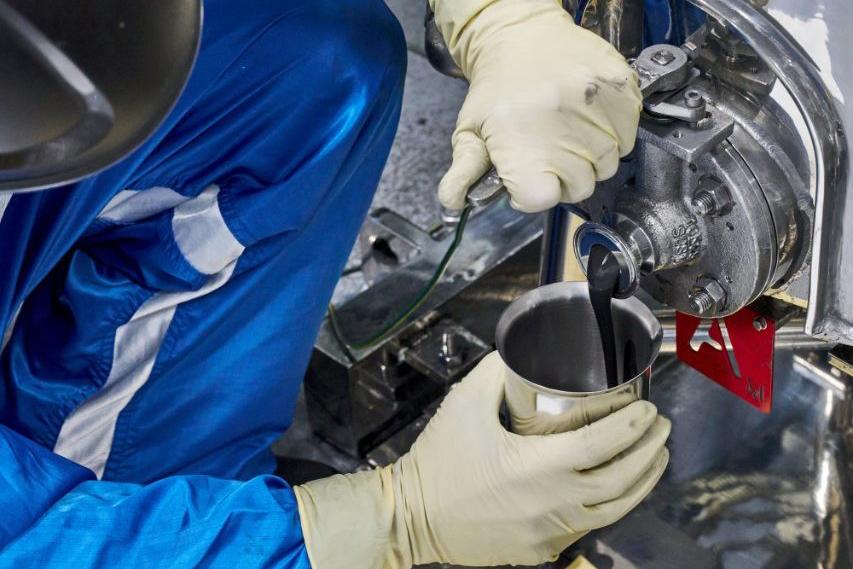
The new LMR batteries will enter commercial production in 2028 at GM/LG Energy Solutions joint-venture plants.
GM says that LMR batteries have been studied since the 1990s, but the chemistry has never been employed in EVs due to concerns over short battery life and voltage decay.
But it claims LMR cells it has tested have energy density 33 per cent greater than the best-performing LFP cells on the market, while matching the lifespan of current-generation high-nickel cells.
Additionally, it can produce LMR batteries using the same equipment used to produce NMC batteries.
“That’s a big benefit to localising low-cost chemistry. LFP wouldn’t be able to use the same manufacturing lines – it needs different lines,” said Mr Oury.
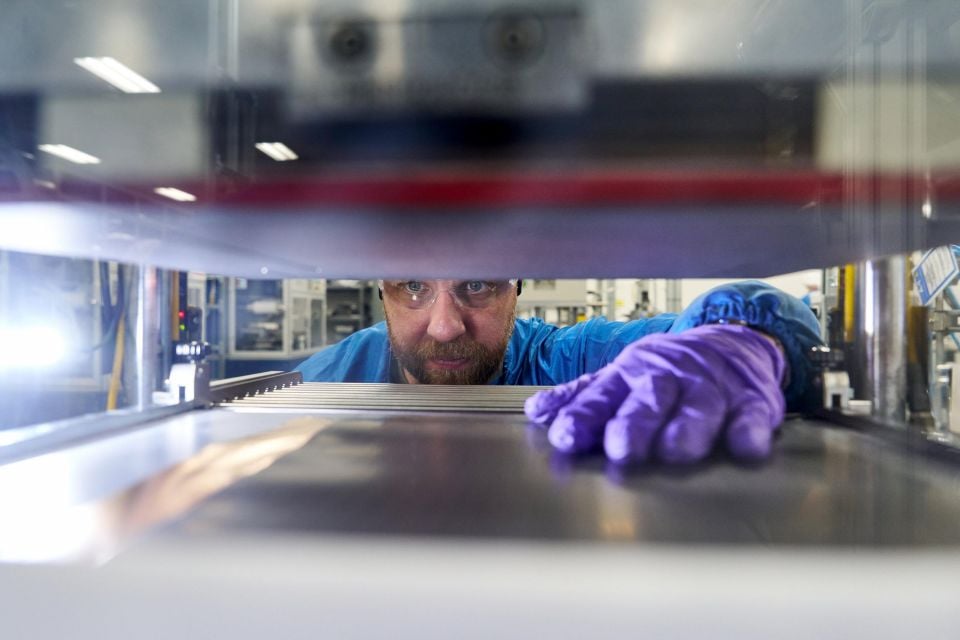
But why is GM almost completely removing cobalt from the equation for these new EV batteries? One word: cost. “One of the easiest formulations of NMC is to take equal parts of nickel, manganese and cobalt, blend them together, and because you’ve got one part of each, we call that NMC 1-1-1,” explained Mr Oury. “The problem with it is these materials don’t have the same cost. Cobalt is clearly the most expensive of those materials, nickel is the next most expensive, and manganese is pretty affordable. “There’s been a tailwind at the back of every battery engineer for the last 10 years, which was everybody just said, ‘We’re going to drop the cobalt as low as possible, and we’re going to increase the nickel as high as possible as a cost-saving strategy’. “So you get rid of the most expensive one, you go to the next most expensive one. The reason you didn’t go straight to the lowest cost one is because nickel is better at storing energy than manganese, so that helps get energy density up along the way. “Every time the industry made a shift towards higher nickel, folks said you won’t be able to make a battery that lasts long, it’ll overheat, it won’t charge fast enough, the battery won’t be stable, and it won’t be abuse tolerant.” Mr Oury explained many EV batteries have gone from 30 per cent nickel to as much as 80 per cent. With its NMR batteries, it plans to push that back down to 30 or 40 per cent, while pushing manganese up to 60 or 70 per cent. “That’s going to help us get battery costs that are comparable to LFP with significantly higher energy density. This is a challenge, but we’ve addressed it with how we manufacture every element of the cell from the electrolyte to the energy-storing materials in the can,” said Mr Oury. That doesn’t mean GM will phase out LFP batteries, which it will offer in the Chevrolet Silverado EV and next-generation Bolt, or NMC batteries, as used in vehicles like its electric Cadillac lineup. “Going forward, we’ll continue to use high-nickel chemistries where you need the longest range. In the rest of the market, we’ll enable LFP near the entry level and LMR for mainstream or value vehicles,” said Mr Oury. “We’re building enough sales volume in different segments that we don’t have to use the exact same engineering solution across all segments. “We can now have an engineering segment for this segment and a modified one for that segment. We’ll still have large economies of scale but we can bring our piece cost and manufacturing cost down by being more application-specific.” He cited the example of the base Work Truck (WT) version of the Chevrolet Silverado EV pickup, which offers a claimed range of 792km. With prismatic cells and LFP chemistry, it can offer 563km from a single charge – so “more range using low-cost LFP chemistry than some of our competition can get using the more expensive high-nickel chemistry”, explained Mr Oury. Despite recent headwinds for EVs – chief among them a new administration in the US that has proven hostile towards the technology – GM is charging ahead. GM has two joint-venture battery plants with LG Energy Solutions and is building one with Samsung SDI, plus it has built a battery cell innovation centre at its Tech Center in Warren, Michigan that can produce full-size cells for prototyping. Under construction is a battery cell development centre which will be able to produce half a gWh worth of cells annually. “This plant will look like a faction of one of these plants, it’ll have equipment that’s largely the same, that can run at about the same speed and help us bridge that gap between prototype manufacturing and full-scale manufacturing,” explained Mr Oury. GM is expanding from pouch cells to new prismatic cells (pictured above), which will be produced at both of its joint ventures.
With these prismatic cells, GM can employ fewer but larger modules. In its electric pickup trucks, this means it can go from 24 modules to just six, with total battery module components reduced by 75 per cent and total pack components by 50 per cent. “We don’t think anybody’s building a lower-cost cell in North America than we are,” said Mr Oury. GM currently offers a diverse lineup of EVs, ranging from the mid-size Chevrolet Equinox EV (pictured above) all the way up to full-size pickups and SUVs such as the GMC Hummer EV and Sierra EV. It’s currently second in terms of EV sales in the US, behind only Tesla. It doubled its EV market share in 2024 as new models came on stream, and grew sales 94 per cent in the first quarter of this year – or almost two full points of market share. GM also builds a range of Buick, Chevrolet and Cadillac electric SUVs in China, and is launching Cadillac into new markets with an EV-only lineup. The Cadillac Lyriq, launched in Australia earlier this year, is GM’s first EV in Australia.